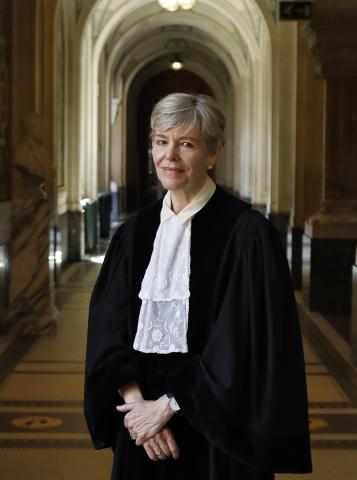/prod01/prodbucket01/media/durham-university/research-/research-centres/durham-european-law-institute/45878.jpg)
Palatine Centre
Law and Global Justice at Durham is honoured to host Judge Hilary Charlesworth of the International Court of Justice for the Durham Law School Distinguished Lecture in Law and Global Justice. The title of Judge Charlesworth’s lecture will be “The International Court of Justice and Human Rights”. The lecture will be held March 17th, 6-7.30pm, in TLC033, Durham University. Please register here.
Speakers
Judge Hilary Charlesworth was elected to the ICJ in November 2021 and re-elected as from 6 February 2024. She is globally renowned for her scholarship on international law. Prior to joining the ICJ, Judge Charlesworth was a Laureate Professor at the Melbourne University Law School, a Distinguished Professor at the Australian National University, and served as Judge ad hoc for the ICJ on two occasions. Judge Charlesworth’s award-winning research and publications span diverse areas, including the structure of the international legal system, peacebuilding, human rights and humanitarian law, as well as ground-breaking scholarship on gender and international law. Judge Charlesworth received the American Society of International Law’s award for creative legal scholarship for her book, co-authored with Christine Chinkin, The Boundaries of International Law: A Feminist Analysis. She was also awarded, with Christine Chinkin, the American Society of International Law’s Goler T. Butcher award for ‘outstanding contributions to the development or effective realization of international human rights law’. Judge Charlesworth was appointed a Member of the Order of Australia (AM) ‘For service to international and human rights law through professional and supporting roles in academia, legal organisations, government bodies and non-government organisations in Australia and internationally, and through the encouragement of human rights dialogue, particularly in the area of women's rights’.


